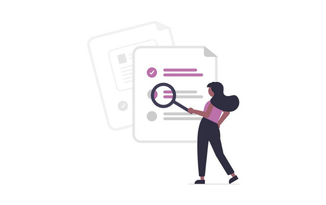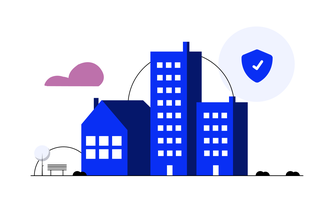Almost 4 million homes comprise London’s housing market, many of which are available to rent. The sprawling city of London is one of the most diverse in the world, offering a vast range of unique areas and properties, each with its own character and selling point. Yet, many renters are still struggling to find the right place to live in and can’t seem to figure out what exactly to look for in a rental property. And we’re just talking about the locals, for many tenants moving from overseas, this overwhelming task can be even more daunting.
Finding a new home, even if it’s just a rental, is arguably one of the most important decisions you can make in your life, and it’s certainly worth doing some research to ensure you find a place that will be right for you long term. In a continuously evolving rental market, we have made it our mission to keep up by regularly conducting our own research to determine what exactly makes a house a home and how to find the perfect place that meets your domestic and social needs without breaking the bank or making your work-life impossible.

It comes as no surprise that many of our tenants consider a property’s location to be the most important factor when it comes to finding a new home. Identifying the area and type of community you want to live in, is for some, more influential than the property itself. Figuring out what exactly you are looking for in terms of location characteristics, is the first step to finding the ideal home - but what are the key elements you should take into consideration when making this pivotal decision?
One factor could be transportation. On average, 3 million Londoners rely on public transportation to get around. If you are one of them, having access to your city’s transportation links should sit pretty high up on your list regardless of whether you’re looking for an urban or suburban setting. Another factor you need to consider is how much time you are willing to put into commuting, if you need to go to work daily, adding an extra hour or two to your workday via commuting may not be the right decision for you, so don’t forget to take into consideration a property’s proximity to your workplace when settling on a location.
Meanwhile, other factors which may play an important role in deciding on a location are neighbourhood leisure options such as the local culinary scene, retail shops, and nearby parks or green spaces. After all, if three lockdowns have taught us anything, it’s that no one wants to be stuck inside all the time!

If you already have a good idea of where you want to live, it’s time to think about what sort of property you want, what will meet your most important criteria, and which will suit your current lifestyle. Let’s start with the basics, if your main objective is practicality, a furnished apartment may be the more appealing option. If, on the other hand, you're looking for space you can make your own, you’ll most likely prefer a part-furnished or unfurnished property that you can mould to reflect your personality. Size and space are additional components that will likely impact your decision. Do you own a car and thus require off-street parking or a garage? Or are you in need of extra space for yourself, your children, or your pets? Another thing to think about is the facilities that a property can offer, such as access to a fitness facility, a pool, or a laundry room. The importance of access to different amenities will depend on how essential it is to you and your lifestyle.

Calculating a monthly budget is absolutely essential before selecting a rental home.
Unfortunately, renting a home involves more than just being able to pay rent, so your budget needs to take into account the potential added costs to work out whether you can afford it or not. Paying your rent on time, as well as covering other household bills, is crucial to maintaining a solid credit score and a good relationship with your landlord.
In addition, there may be additional bills you may have to pay as a tenant, so it’s vital that you know what these costs will be before settling on a property. While some landlords may include utilities into the base rent, many others will require that you pay these costs separately. Aside from council tax costs, which can vary from borough to borough, the type of utilities you may have to pay for will differ depending on the property you choose. Typically this may include water bills, gas and/or electricity bills, and in some cases even service charges. If you opt for an unfurnished property, the initial costs of furniture should also be taken into the budget. Ensuring that your budget takes into consideration all these potential costs will guarantee that you remain free from financial pressures, which is essential if you're looking for a long-term rental you can thrive in and truly enjoy.
A few additional costs to keep in mind may include;
Broadband bill i.e WIFI (paid monthly or quarterly)
A TV licence (paid monthly or annually)
Landline phone bill (plus any connection charges - can be paid quarterly or monthly)
Contents insurance (paid monthly or annually)
With this multitude of factors to consider when renting a property, it becomes clear why so many tenants struggle with finding the right rental. Taking into account all these elements might be your best option when it comes to choosing the right home, by figuring out your essentials and balancing your needs in a quick efficient manner you’ll ensure that you find a place that’s more than just a house, a place you can really call home.
If you’re currently looking for a new property to rent and are in need of a guarantor, look no further as we are here to help streamline the process with our Guarantid service which aims to redefine the rental industry by providing financial inclusion to those of us who are unable to pass traditional rental referencing.
For more information on our Guarantid service, please visit our product page here >




